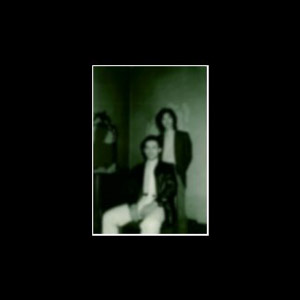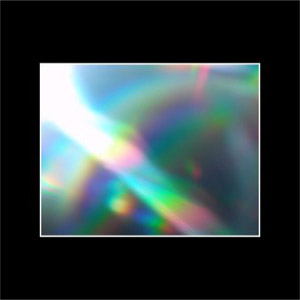 Masami Akita and Maurizio Bianchi are without question amongst the pioneers of harsh, abrasive electronic music. Both of their careers began quite prolifically around the same time, and since Bianchi's return in the late 1990s have continued as such, with both producing a massive number of albums each year. These two albums act nicely as reference points on their long careers, with the 10" capturing pieces each submitted for the Mail Music Project compilation, here appearing unedited for the first time, and the LP being a recent collaborative work that stands amongst both artists' best material as of late.
Masami Akita and Maurizio Bianchi are without question amongst the pioneers of harsh, abrasive electronic music. Both of their careers began quite prolifically around the same time, and since Bianchi's return in the late 1990s have continued as such, with both producing a massive number of albums each year. These two albums act nicely as reference points on their long careers, with the 10" capturing pieces each submitted for the Mail Music Project compilation, here appearing unedited for the first time, and the LP being a recent collaborative work that stands amongst both artists' best material as of late.
The material on the 10" was recorded contemporaneously, but independently from one another for the aforementioned 1983 compilation that presented only a minute of each work.Bianchi's contribution, "Amniocentesi," is pure 1980s M.B.: all slow decrepit electronics and depressive atmospheres.The morose, damaged synths are occasionally met with a stammering, fragmented drum machine likely from a broken down organ, with everything staying firmly rooted in Bianchi's grey and cheerless ambience.
The Merzbow piece, "Envoise 30 05 1982," sits nicely with his early 1980s discography, before he became overly focused on piercing harsh noise blasts and instead dabbled in tape loops and found sounds.Phasing distortion overshadows slowed down tape collages, with the occasional burst of harsh noise that makes for a strong rhythmic accent.With some fuzzy textures and turntable scratch skittering, it is pure old school Akita, and easily my favorite era of his career.

The material on Merzbow Meets M.B. is recent work from both acts as a true collaboration, and the bonus included 7" makes for a nice split release to compare to the 10" as far as the individual artists' work goes."Dissonant Abstraction" initially is all roaring, cavernous Merzbow noise, but kept restrained and under control.Low register swells and patterns make for an ersatz rhythm, with haunting passages of synthesizer clearly marking Bianchi's contributions.His work here has shades of his more recent new age material, but it works, balancing out the harsher end of Akita’s harsh noise.In some ways it sounds like each artist’s solo work mixed together, and it is rather effective.
The other half, "Surreal Distortions," is overall more in the noise spectrum of things, with muffled, bassy noises and thin analog electronics.There is not the same hints at melody as on the other side, and instead focuses on harsher textures.Bent oscillators and electronic chirps mark this a clearly analog piece, and with the occasional use of phasing and flanging it calls to mind some of CCCC and Astro's best work.Here it feels more like a collaboration between the two, with Akita’s use of chaotic mixing and Bianchi’s use of synthesizer sounds.
The 7" single included with the LP features each artist contributing their own recent solo works as well, and while both are excellent, neither are surprising.Merzbow's "Fragment B" is all scraping metal and bleeping electronics, so in some regards is a throwback to his early 1990s junk noise sound without the overly loud electronics.An occasional rhythm sneaks in here and there, but for the most part it is pure chaos.Bianchi's "28th Flux" has the bleakness of his early works, but a more modern, higher fidelity sheen covering the pained electronics and darkness.
As both artists are ridiculously prolific, and I personally have a fondness for their earliest work in both cases, I tend to only occasionally dabble in either of their new releases.In this case, the recent collaboration work is exactly what I hoped it would be, mixing the best sounds of both artists together splendidly.Coupled with the vintage material on the 10", and it makes for a pair of releases that demonstrates the best facets of these two long respected artists.
samples:
 
Read More

